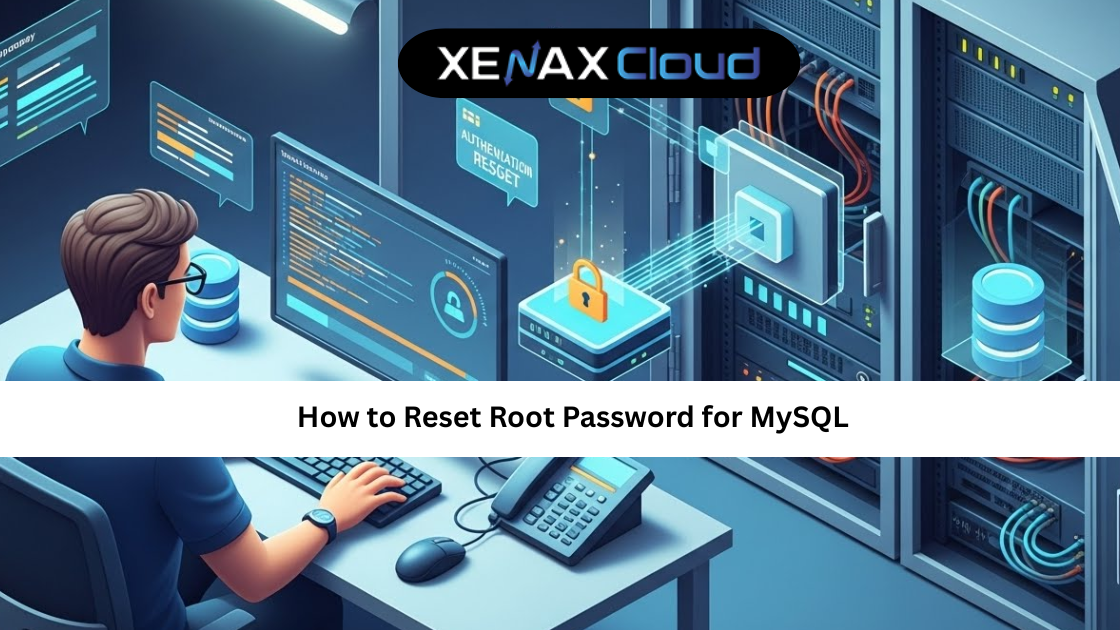If you need a server you control fully, Ubuntu dedicated hosting is a top choice. Ubuntu combines a familiar Linux environment with predictable updates, long-term support releases, and a large ecosystem of packages. For websites, applications, databases, CI/CD runners, game servers, or analytics, an Ubuntu dedicated server gives single-tenant performance and full root access — essential when predictable performance, compliance, or custom stacks matter.
Choosing Indian infrastructure for your Ubuntu dedicated hosting can be a smart move for global teams. India offers cost-effective data centers, low latency across Asia, robust compliance options, and scalable network capacity. In this guide we explain what Ubuntu dedicated hosting means, how to pick the right server, practical security and performance tips, comparisons with other regions, real-world use cases, scalability patterns, and recommended XenaxCloud plans to get started quickly.
Why choose Ubuntu dedicated hosting?

Ubuntu is one of the most popular Linux distributions for servers because it balances stability and modern tooling. Ubuntu LTS (Long Term Support) releases provide five years of security fixes, which simplifies maintenance for production systems. When paired with a dedicated server, Ubuntu lets you:
- Run resource-intensive apps without noisy neighbors.
- Install custom kernels, network stacks, and storage drivers.
- Control backups, snapshots, and disk encryption end-to-end.
- Meet compliance and data residency requirements when hosted in chosen regions.
From a developer’s viewpoint, Ubuntu supports the latest runtimes such as Node.js, Python, PHP, and container runtimes like Docker and containerd. For ops teams, Ubuntu’s apt package manager, cloud-init support, and wide community documentation make automation and provisioning efficient.
How to choose the right Ubuntu dedicated hosting plan
Choosing the right plan starts with realistic workloads and growth projections.
- Identify the workload profile: is it CPU-bound (video encoding, analytics), memory-bound (in-memory caches), I/O-bound (databases), or network-heavy (streaming, CDN origin)?
- Pick baseline resources: a small application might run well on a 2-4 vCore server with 8–16GB RAM, while databases and high-concurrency web apps often need 32–64GB RAM and NVMe storage.
- Consider storage: choose SSD/NVMe for low-latency I/O and RAID or backups for redundancy.
- Bandwidth needs: estimate monthly transfer; for heavy downloads or CDN origin, provision larger bandwidth or colocate with a CDN.
Example matches from XenaxCloud plans: if you want a compact, low-cost dedicated environment for a critical app, a KVM VPS 1 — 2 Vcore CPU, 8GB RAM, 40GB Storage, 2TB Bandwidth, $5.99 (as a VPS alternative) is a good testbed. For production-grade Ubuntu dedicated hosting where you need pure hardware, explore XenaxCloud Dedicated Servers for full dedicated specs and support. For most production Ubuntu dedicated hosting needs, begin with a robust VPS or a gold-tier KVM VPS and scale to dedicated hardware when required. For domain and DNS bundling, XenaxCloud’s Dedicated Servers page has details: https://xenaxcloud.com/dedicated-server/
Speed, uptime, and security advantages
Performance and reliability are where Ubuntu dedicated hosting shines.
Performance basics:
- Dedicated CPU and memory eliminate noisy neighbor interference.
- Local NVMe or SSD reduces database latency and speeds up application response.
- Predictable network bandwidth avoids throttling and provides consistent throughput.
Uptime and reliability:
- Dedicated hardware allows for stronger SLAs and targeted maintenance windows.
- You control kernel updates and reboots, so scheduled maintenance aligns with business needs.
- When hosted in a quality data center, redundant power, network paths, and DDoS protections improve availability.
Security best practices for Ubuntu dedicated hosting:
- Use Ubuntu LTS and enable unattended security updates for CVE patches.
- Harden SSH: disable root login, use key-based auth, change default ports, and apply fail2ban.
- Encrypt disks with LUKS for data-at-rest protection and use TLS for all services.
- Use host-based firewalls (ufw or nftables), and deploy a WAF for web traffic.
- Regular backups and offsite snapshots are essential; test recovery procedures frequently.
Example: an e-commerce site using Ubuntu dedicated hosting can colocate the database on an isolated NVMe volume with LUKS, place the web tier behind a load balancer, and offload static assets to a CDN. This yields fast checkout times and protected customer data.
Real-world use cases for Ubuntu dedicated hosting
- High-performance databases: PostgreSQL and TimescaleDB perform best on dedicated hardware with fast I/O; Ubuntu’s stability and wide package support make it ideal.
- Game servers and real-time apps: low-latency network stacks and CPU isolation are critical for deterministic performance. Ubuntu lets you tune sysctl and IRQ affinity.
- Machine learning inference: dedicated CPU/GPU hosts (or dedicated servers with GPU add-ons) on Ubuntu provide optimized drivers and container runtimes.
- Media encoding and streaming origins: dedicated servers provide predictable throughput for live streaming and VOD origin servers.
- Enterprise applications and ERP: secure, single-tenant hosting with compliance controls and private networking.
Each use case benefits from Ubuntu’s long-term support model and the flexibility to customize kernels and drivers.
Why Indian servers handle global traffic efficiently
Indian data centers are not just local choices; they are strategic distribution points.
- Geographic advantage: India sits in the middle of South and Southeast Asia — hosting here reduces latency for a large regional audience.
- Peering and exchange points: major Indian data centers peer with global networks, enabling efficient routing to Europe, North America, and Middle East when combined with smart BGP routing.
- Cost-performance ratio: for many workloads, India offers lower total cost of ownership, allowing you to allocate budget to redundancy, CDN, or security.
- Global reach with hybrid approach: place origin servers on Ubuntu dedicated hosting in India and use a CDN and global DNS Anycast to serve worldwide users with low latency.
Practical tip: pair Ubuntu dedicated hosting in India with a multi-region CDN and global DNS to achieve sub-200ms response times in most metros worldwide.
Scalability options for startups and agencies
Startups and agencies often need a clear path to scale without replatforming.
- Start small, test, then scale vertically or horizontally. Begin with a small dedicated server or a high-performance VPS and increase CPU/RAM or add NVMe storage as demand grows.
- Use container orchestration on Ubuntu with Docker and Kubernetes for horizontal scale; dedicated hosts can serve as worker nodes.
- Automate infrastructure with configuration management tools (Ansible, Terraform) so new dedicated hosts can be provisioned quickly.
- Consider a hybrid model: sensitive workloads on Ubuntu dedicated hosting, while stateless frontends are in cloud regions or CDN edges.
Example scaling path: an agency launches client sites on Shared Hosting — Silver for cost efficiency during development, then migrates high-traffic clients to KVM VPS 3 — 8 Vcore CPU, 32GB RAM, 80GB Storage, 5TB Bandwidth, $17.99 or a dedicated server for predictable peak traffic handling.
Comparison: Indian servers vs US, Canada, Germany, UAE
Below is an operational comparison focused on serving global traffic, reliability, and support capabilities. This is not a pricing comparison.
| Feature | India | US / Canada | Germany | UAE |
|---|---|---|---|---|
| Regional latency (Asia) | Lowest for South & SE Asia | Higher | Moderate | Good for ME |
| Support availability | 24/7 local support, regional language options | 24/7 global support | Strong SLA-focused support | Regional support, business hours focus |
| Compliance & data residency | Local residency options | US regulatory environment | EU data protection | Local regulations |
| Provisioning speed | Fast | Fast | Varies by provider | Varies |
| Global traffic handling | Efficient with CDN & Anycast DNS | Excellent | Excellent in EU | Good for ME and Asia |
This comparison shows why Ubuntu dedicated hosting in India, when combined with global CDN and DNS, is a cost-effective way to serve regional and international audiences.
Practical deployment checklist for Ubuntu dedicated hosting
- Choose Ubuntu LTS (e.g., 22.04 LTS) for stability.
- Partition and encrypt disks; use LVM for flexible resizing.
- Configure SSH keys and 2FA for registrar and control panels.
- Install and configure fail2ban, ufw, and regular security updates.
- Set up automated backups to an offsite location.
- Implement monitoring (Prometheus, Datadog, or simple uptime checks).
- Use TLS with ACME (Let’s Encrypt) and automate renewal.
- Document runbooks for incident response.
- 16 GB RAM
- 240 GB SSD
- 10 TB Bandwidth
- 1 IPV4 & IPV6
FAQs
What is the difference between Indian VPS and foreign VPS?
Indian VPS hosts your data in India offering lower latency for South Asian users and local compliance options, while foreign VPS target their own regions and may yield lower latency elsewhere.
Can Indian servers handle global website traffic?
Yes; with CDNs, Anycast DNS, and proper peering, Indian servers can serve global traffic efficiently while providing strong regional performance.
Is Indian hosting cost-effective for international users?
Often yes — Indian infrastructure can deliver good performance at lower cost, especially when paired with global edge services for worldwide reach.
How reliable is XenaxCloud hosting?
XenaxCloud provides infrastructure redundancy, 24/7 support, and fast provisioning to help maintain high uptime and predictable performance.
How to choose the right server for my business?
Match expected traffic patterns, CPU/memory needs, storage type, and compliance requirements to server specs; start with a scalable VPS or entry dedicated plan and grow as needed.
Do I need managed services for Ubuntu dedicated hosting?
Managed services are recommended if you prefer offloading patching, monitoring, and backups; otherwise, experienced DevOps can self-manage.
Recommended XenaxCloud plans for Ubuntu dedicated hosting
For different needs, these XenaxCloud plans are relevant and named exactly as in the plan list:
- Development and small sites: Mini Hosting — Starter — 1 Website, 2GB Storage, 10GB Bandwidth, $0.84 for testing and staging before moving to dedicated hardware.
- Small production apps and agency projects: Shared Hosting — Silver — 1 Website, 15GB Storage, 100GB Bandwidth, $1.79 provides an affordable managed environment.
- Performance-focused and production: KVM VPS 3 — 8 Vcore CPU, 32GB RAM, 80GB Storage, 5TB Bandwidth, $17.99 is a solid step into single-tenant performance.
- When you need single-tenant physical isolation and predictable throughput, choose a XenaxCloud Dedicated Server (see the dedicated server page for exact configurations).
Use the XenaxCloud Offers page to check current deals when you decide to provision: https://xenaxcloud.com/offers
Final checklist before launch
- Verify backup and recovery procedures.
- Test failover and scaling scripts.
- Secure your control plane and registrar accounts.
- Establish monitoring and alert thresholds.
Conclusion
Ubuntu dedicated hosting gives you full control, predictable performance, and the security posture required for production services. By choosing Ubuntu LTS on dedicated hardware you minimize maintenance surprises and gain the flexibility to tune the OS to your workload. Indian-based Ubuntu dedicated hosting provides cost-effective infrastructure, strong regional latency for Asia, and easy scalability for international businesses when combined with CDN and Anycast DNS.
If you are ready to move from shared or VPS hosting to a robust, managed dedicated environment, consider XenaxCloud’s Dedicated Servers and the recommended VPS options above. Enable auto-renew, set up backups, and use 2FA to secure your environment. XenaxCloud supports a 15-day money-back guarantee and transparent provisioning — check the latest offers on the XenaxCloud Offers Page and pick a plan that fits your growth path.
Start your Ubuntu dedicated hosting journey now with XenaxCloud’s dedicated solutions and scale confidently.






